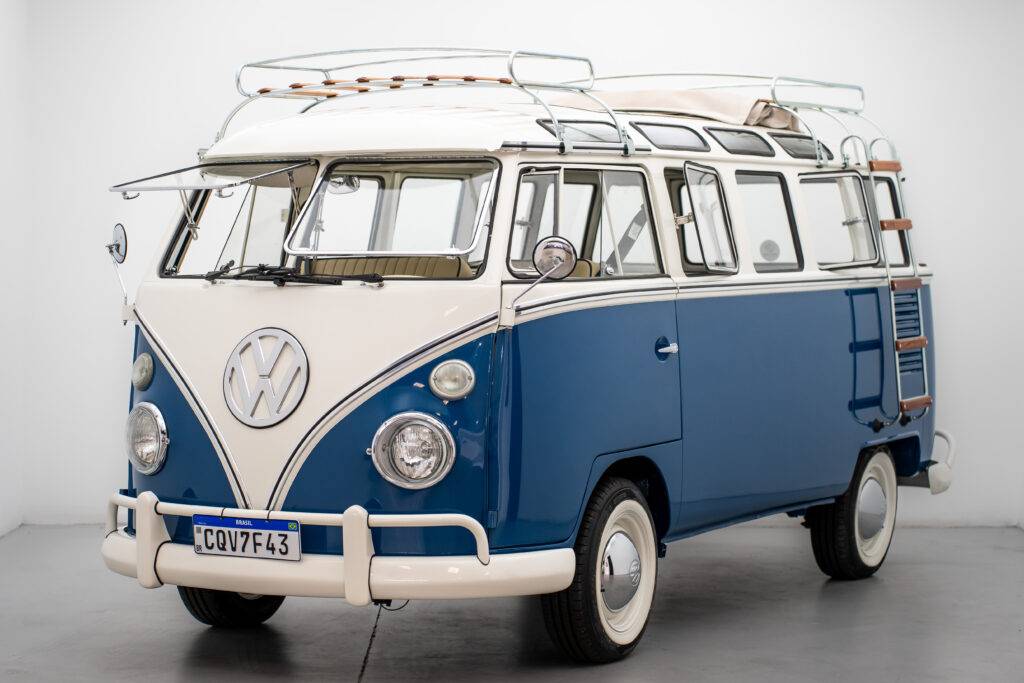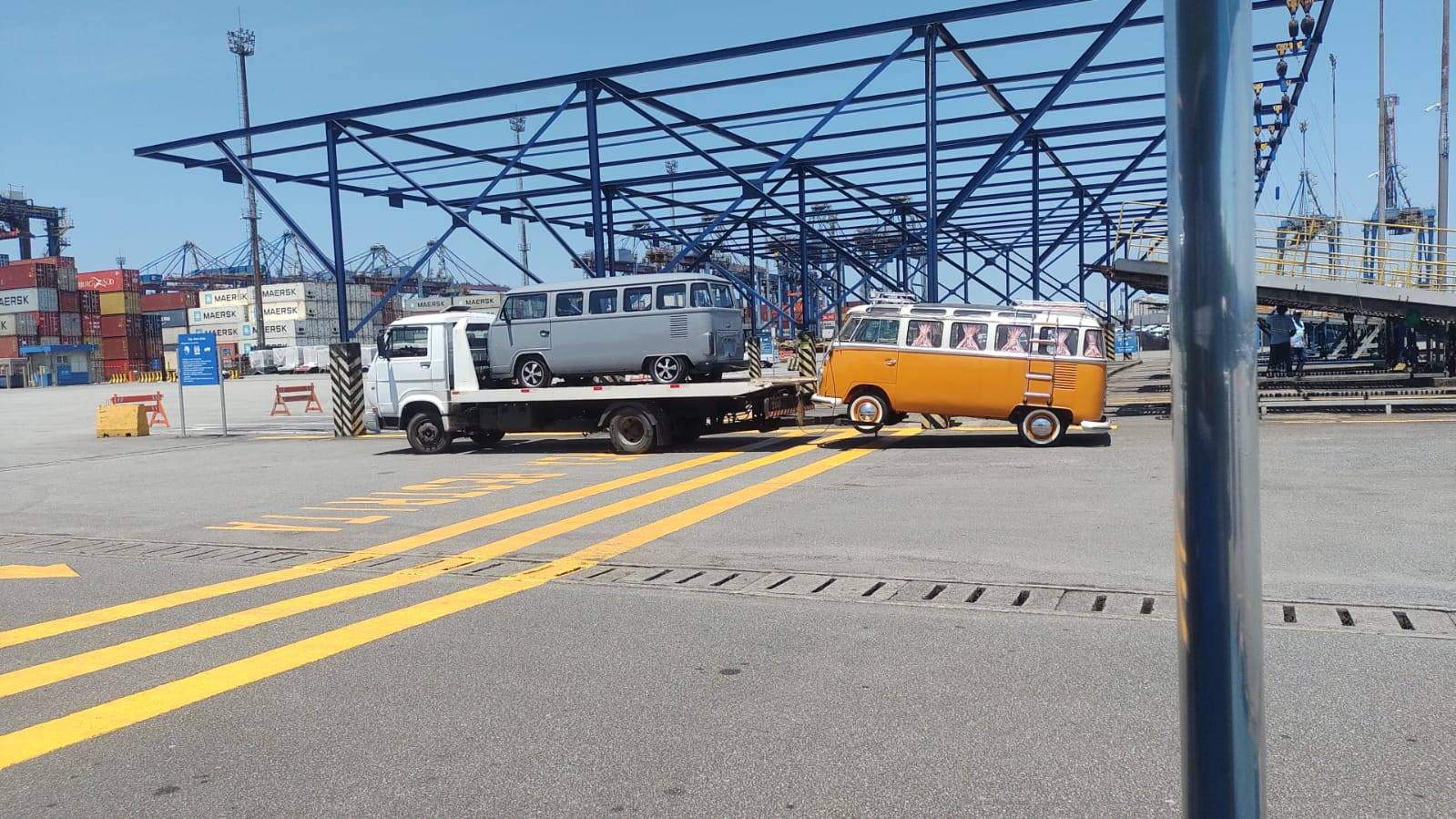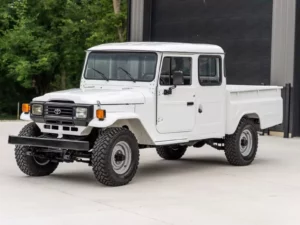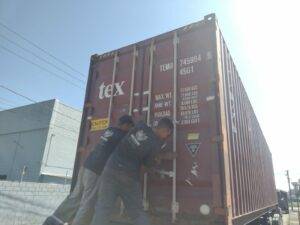Your Guide to Importing a Classic VW Bus from Brazil
Brazil is one of the best places in the world to find a classic Volkswagen Bus, often referred to as the Kombi in Brazil. While production of the iconic van ended globally decades ago, Brazil continued manufacturing Kombis until as recently as 2013, meaning there’s still a large supply of well-preserved models across the country. If you’re considering importing a Volkswagen Bus from Brazil, this comprehensive guide will walk you through every step of the importation process from Brazil, including logistics, paperwork, and shipping options.
Quality Control when Buying a VW Bus from Brazil
Most potential buyers looking to import a Volkswagen Bus from Brazil may not have the opportunity to visit and inspect the vehicle in person. They are often reliant on pictures, but as you know, pictures can only tell you so much. One of the most difficult aspects to assess from a photo is the quality of the welding work, which forms the foundation of the restoration. If the welding is done poorly, it can lead to serious structural problems down the line, resulting in costly repairs and headaches.
In addition to the welding, spare parts used in Brazilian restorations can sometimes be of lower quality than those available in Europe or the US. While some parts may look fine at first glance, their performance over time may not meet the standards of more high-quality alternatives, potentially leading to mechanical issues in the future.
For our restoration projects in Europe, we collaborate with our trusted partner garage in The Netherlands, where the engine is fully restored with a guarantee of 1 year / 10,000 km. This guarantees the long-term reliability of the engine, providing you with peace of mind and ensuring your investment is sound.
Verify Ownership and Documentation First
Before proceeding with any logistics or shipping of your Volkswagen Bus from Brazil, it’s important to verify the Kombi’s legal status. Ensure the seller is the registered legal owner by checking the Renavam (Brazil’s national vehicle registry). Also, confirm that there are no outstanding fines, taxes, or financial obligations on the vehicle. Any unresolved legal issues can prevent the car from being exported from Brazil, potentially leading to delays and extra costs. It’s advisable to work with a local partner or despachante (licensing agent) to ensure all the paperwork is in order.
Ensure Safe Payments and Secure Transaction
When it comes to importing a Volkswagen Bus from Brazil, securing the right payment process is key to avoiding fraud or misunderstanding. We guarantee safe payment when you choose our services. We only release payment to the seller at the moment we take possession of the vehicle. This way, there is no credit risk for you. You can rest assured that the car will be in your hands before any financial transactions are completed. This ensures a transparent, secure process that protects both buyer and seller.
Internal Logistics in Brazil
One of the first and most overlooked steps in importing a Volkswagen Bus from Brazil is organizing internal logistics. Brazil’s vast distances and rougher roads can make transporting a vehicle costly—and risky. It’s crucial to work with insured, experienced partners who know how to handle classic cars. Local transport damage is one of the most common setbacks, so make sure your VW Kombi is handled with care right from the start.
Essential Paperwork for Exporting a Volkswagen Bus from Brazil
Brazil is known for its bureaucracy, and exporting a Volkswagen bus is no exception. The process involves:
- Ownership transfer to a licensed export company
- Inspection (vistoria) by the local transport department (Detran)
- Permanent de-registration (baixa permanente) of the vehicle
All of these steps are processed through DETRAN, the official government agency responsible for vehicle documentation and inspection in Brazil. Without these documents, the vehicle cannot legally leave the country.
It’s also crucial to ensure the vehicle’s papers are in order. In older models, especially VW T1s, it’s common for engine numbers to be missing from the documents. Resolving these issues can take several weeks, so thorough checks are essential before making a purchase.
The Importance of a RADAR License When Importing a Volkswagen Bus from Brazil
To export a Volkswagen Bus from Brazil, a RADAR license is required. This license is issued by the Brazilian tax authorities and is usually only held by export companies. Therefore, most international buyers need to go through an indirect export process—meaning the export company temporarily becomes the legal owner of the Kombi.
While this may sound complicated, there are benefits. The export company will handle all paperwork, logistics, and container loading—giving you peace of mind that everything is managed by professionals who know the process.
Choose the Right Shipping Method for Your VW Bus
When importing a Volkswagen Bus from Brazil or buying a Kombi, choosing the right shipping method is crucial. There are two primary options: Container Shipping and RoRo (Roll-on/Roll-off). Both methods have their pros and cons, depending on your budget and level of protection desired.
Container Shipping
In container shipping, your Volkswagen Bus is loaded into a sealed container, offering high protection from the elements and potential damage. This method is ideal for classic cars and high-value vehicles, as it ensures safety during transit. However, it is typically more expensive than RoRo shipping.
To reduce costs, we also offer shared containers, where two vehicles from different clients are shipped together in one 40-foot container. This is a popular option for buyers who want container-level protection at a lower price point. It’s an economical and efficient shipping solution when importing a VW Bus from Brazil.
RoRo Shipping
RoRo (Roll-on/Roll-off) shipping is a more affordable option. In this method, the vehicle is driven onto a specialized ship and parked securely. The main benefit is lower cost and faster transit times. However, the vehicle is exposed to the elements during the journey, which may increase the risk of damage.

Want help choosing the best shipping method?
Why Importing a Volkswagen Bus from Brazil Is Worth It
Despite the paperwork and logistics, importing a VW bus from Brazil offers access to some of the best-preserved models in the world. These vehicles are not only functional—they’re a piece of automotive history.
With the right team handling the details, you can enjoy the satisfaction of owning a vintage Volkswagen bus that tells a story. Whether for collection, adventure, or business, it’s a ride like no other.
Ready to import your own Volkswagen Bus from Brazil?
👉 Browse our available VW Buses for sale to find your perfect match.
❓ Can’t find your dream VW Bus? Contact us for a quote on a tailor-made Kombi from our garage in Brazil – restored and customized just for you.
🔎 Still searching? We can also source a Volkswagen Bus through our trusted network in Brazil.




